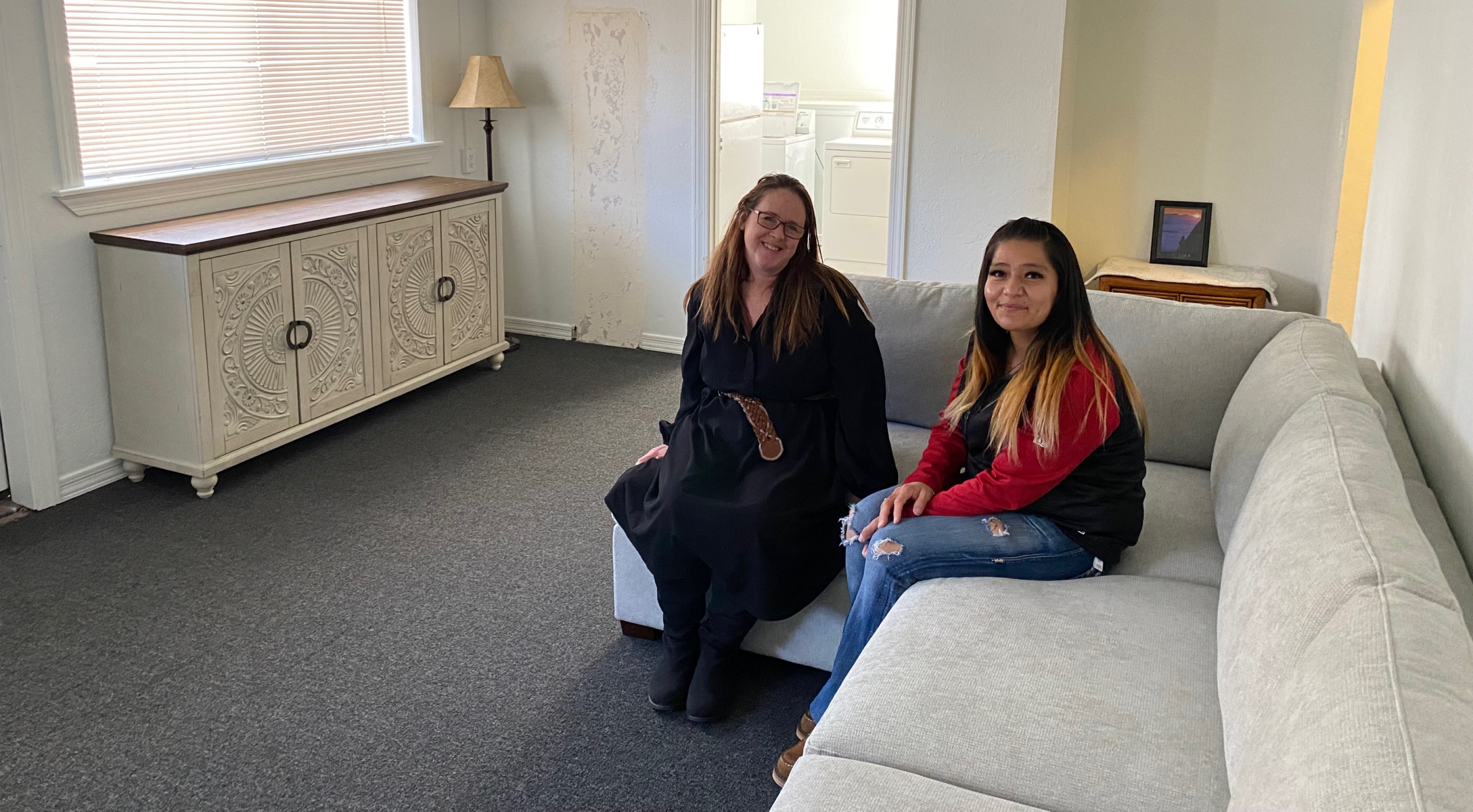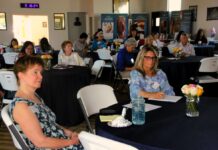Program helps previously incarcerated integrate into the community
Cottonwood, Ariz. – Catholic Charities Community Services recently expanded its re-entry housing program in the Northern Arizona communities of Cottonwood, Page, and Kingman. The housing-first model community re-entry program provides safe, affordable, housing to individuals who have had recent justice involvement. Providing a stable and supportive home to those previously incarcerated allows them to successfully integrate into the community, which reduces the rate of recidivism.
Bringing the total to eight, the new Cottonwood, Page and Kingman homes join existing residences – one in Williams, one in Prescott, and three in Flagstaff. Each home is designated for either men or women, serving anywhere from four to eight individuals. The Tamarisk House in Page is home to seven women. The Cottonwood House in Cottonwood serves six women. The Mohave Sage House in Kingman houses up to seven women.
Housing first is a best practice in assisting those with housing insecurity or homelessness based on research and proven results. The re-entry housing program requires that individuals have had recent justice involvement and are without a safe and stable place to go, or are facing housing insecurity. The model allows residents to first address the need for stable housing, which enables them to effectively focus on barriers to long-term housing success and self-sustainability. The benefit of re-entry versus recovery homes is that residents can address their whole health, promoting independence and self-sufficiency as they re-integrate into society, while getting support from others facing similar situations.
“Wraparound services are an integral component of the success of the housing first model. Providing residents with resources, as well a safe place to live, gives them an opportunity to create a positive, fulfilling life,” said Camie Rasband, Catholic Charities Community Services program director.
Unlike traditional recovery houses, the re-entry homes do not have curfew restrictions or live-in staff overseeing the residents. The freedom and independence empowers residents to gain the skills necessary to become self-sufficient. Case management is provided to help residents forge a successful path, including resources for substance use recovery, as well as aid in finding gainful employment. Additionally, residents must maintain justice-related requirements and meet all conditions of the court, such as regular meetings with parole or probation officers. A peer supported environment, residents contribute to household chores and attend regular group meetings with fellow residents and case managers, where they share common challenges and solutions.
All resident referrals come through community coordinated entry systems. Catholic Charities Community Services partners with Pathways to the Community, a program of the Coconino County Jail; Yavapai County Justice Center; and Mohave County. The re-entry housing program is funded in a variety of ways. Residents pay a minimal amount of rent each month, with the first month typically covered by justice partners. Additionally, Catholic Charities Community Services receives funding from the Arizona Department of Housing through Housing Trust Funds and funds through the Diocese of Phoenix’s “Together We Go Forth” campaign.
Since the program launched in 2016, Catholic Charities Community Services has served nearly 140 individuals. Re-entry housing residents on average obtain employment within 30 days and find alternate housing within nine months. Compared to the state average of 39-percent, the average recidivism rate for residents in the re-entry housing program is only 18.4-percent.
Robin, one of Catholic Charities Community Services first re-entry clients, had been in and out of jail most of her early adult years. She was lost in the throes of addiction and had her children taken away from her. After what would be her final stay in jail, she was introduced to Juniper House in Flagstaff. Robin is now a lead probation officer in Coconino County, overseeing the same recovery program in which she was once enrolled.
“My life today feels like a dream compared to eight years ago,” shares Robin, “I woke up in a home that I own, reunited with my daughter who now lives with me. I have a career that’s really rewarding, working to help people that are struggling like I was years ago. Juniper House really did give me a life I like living.”







